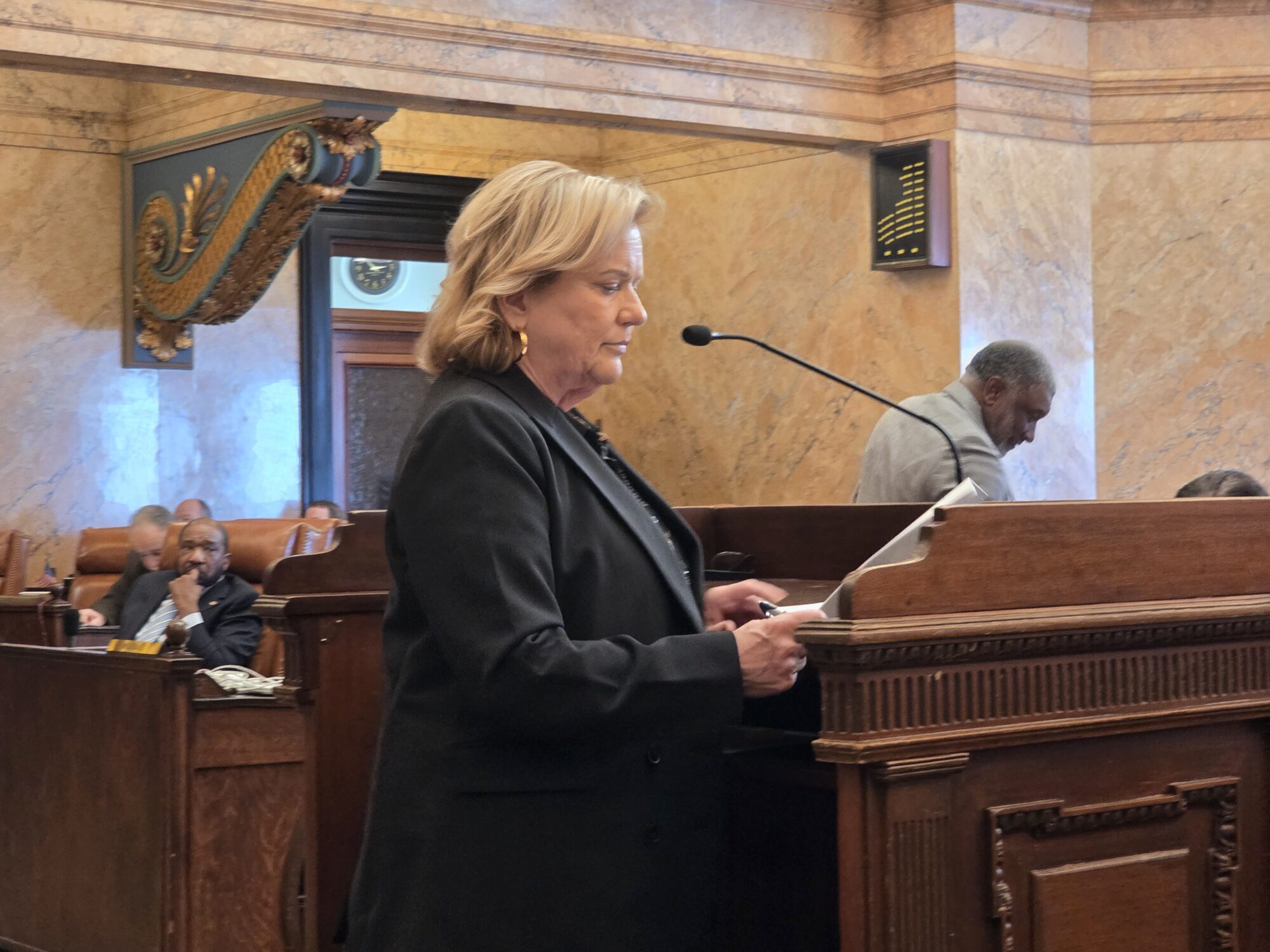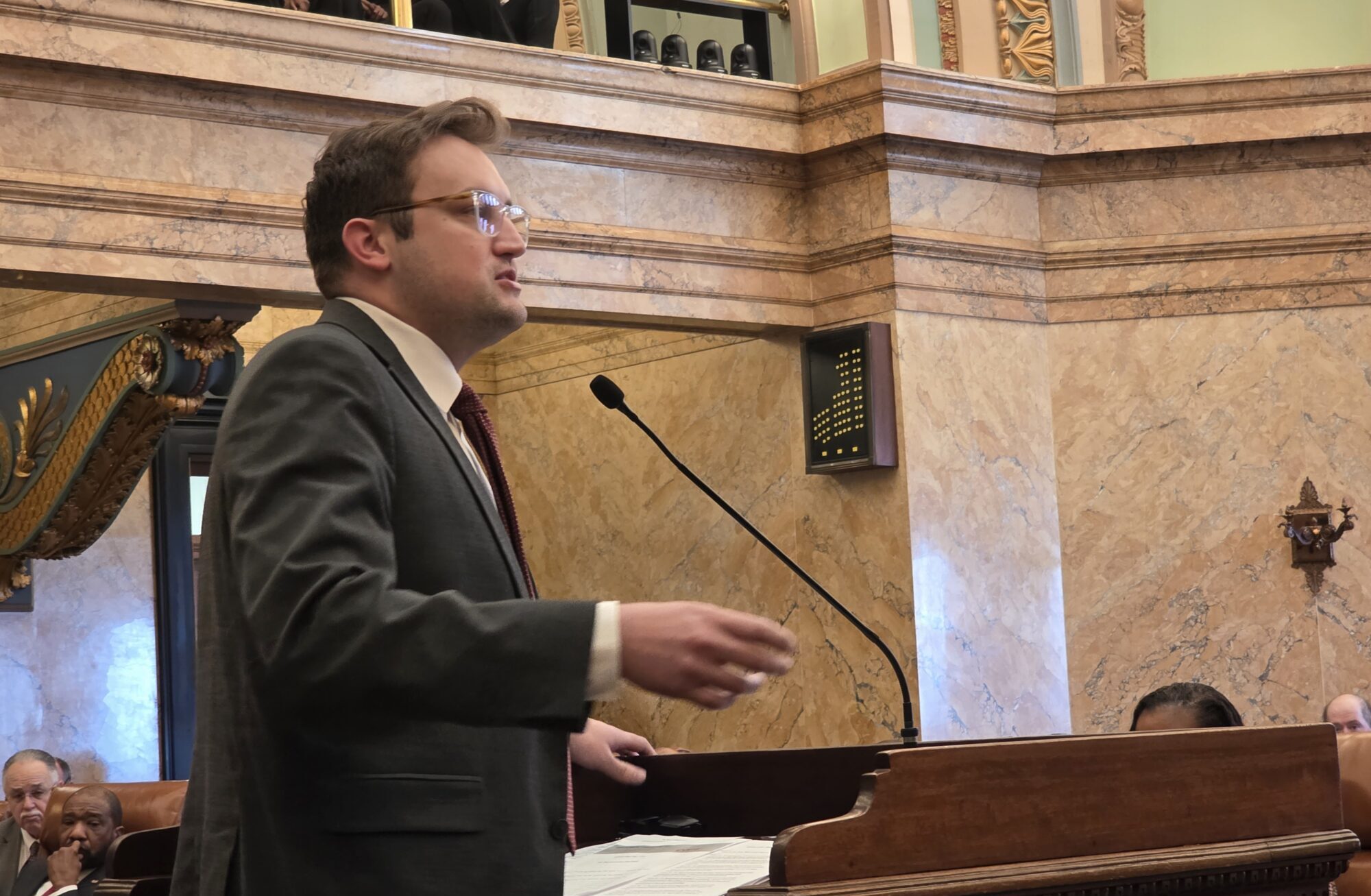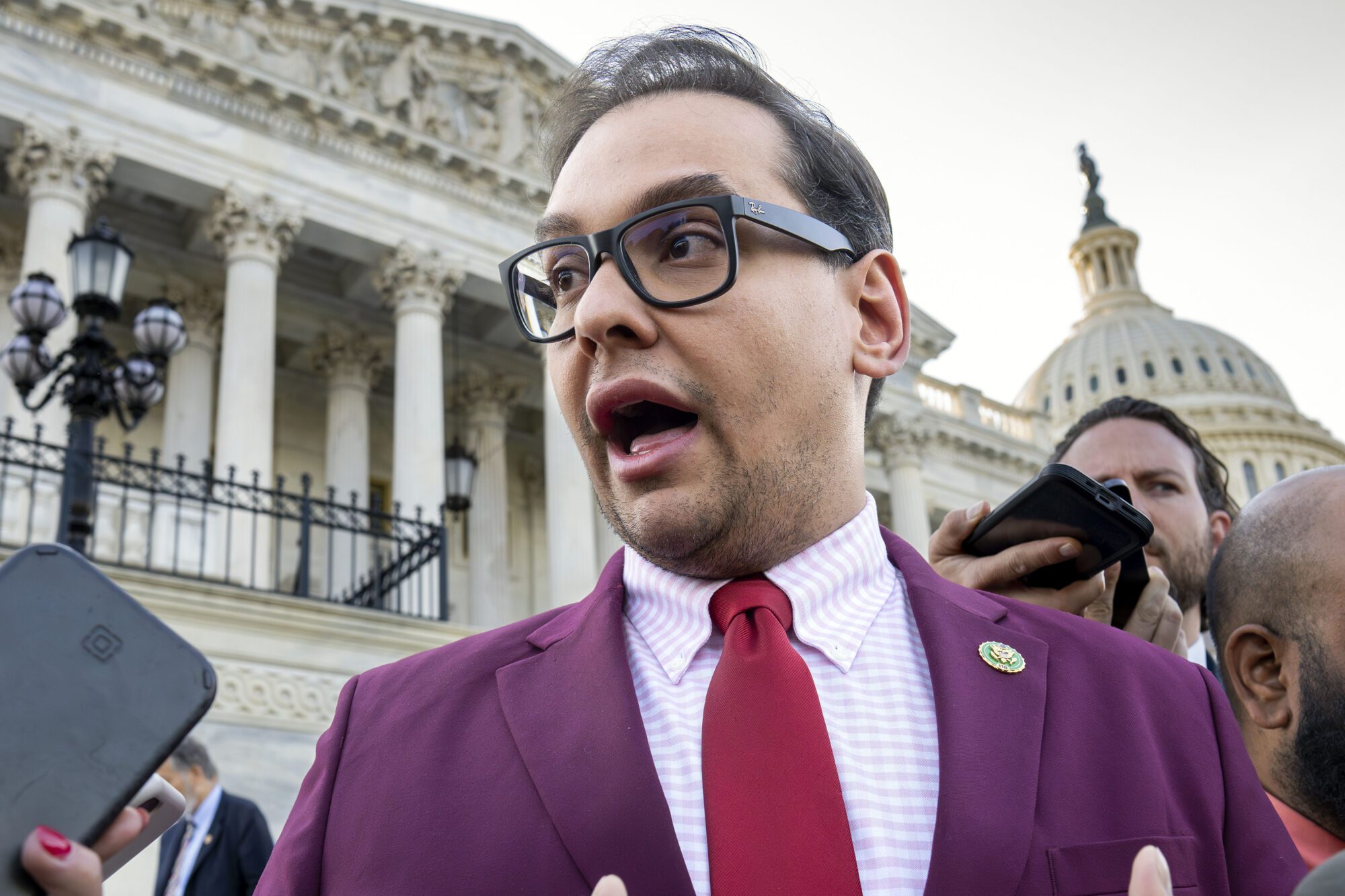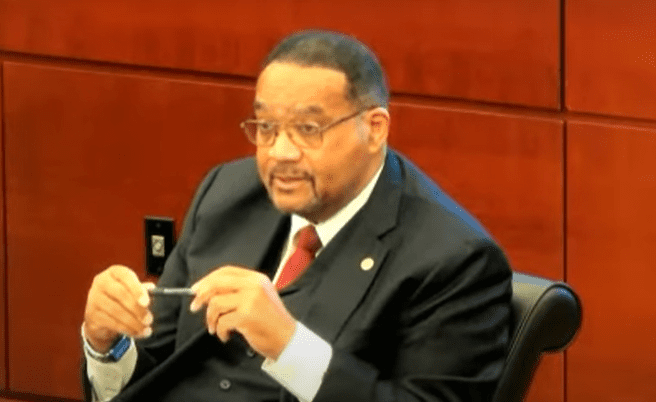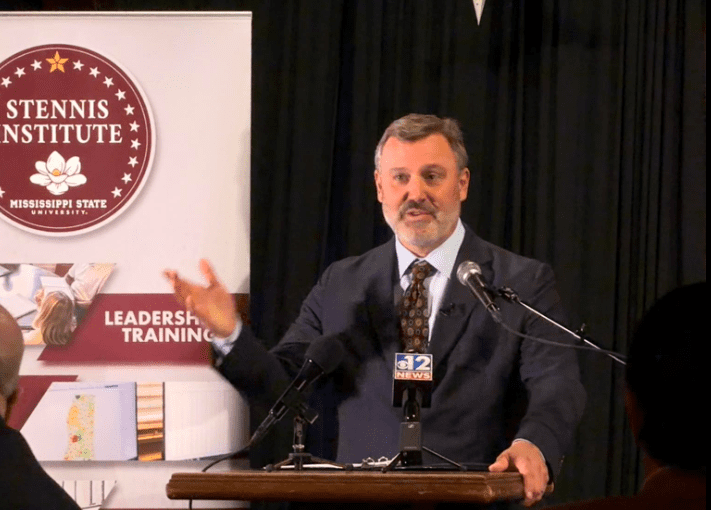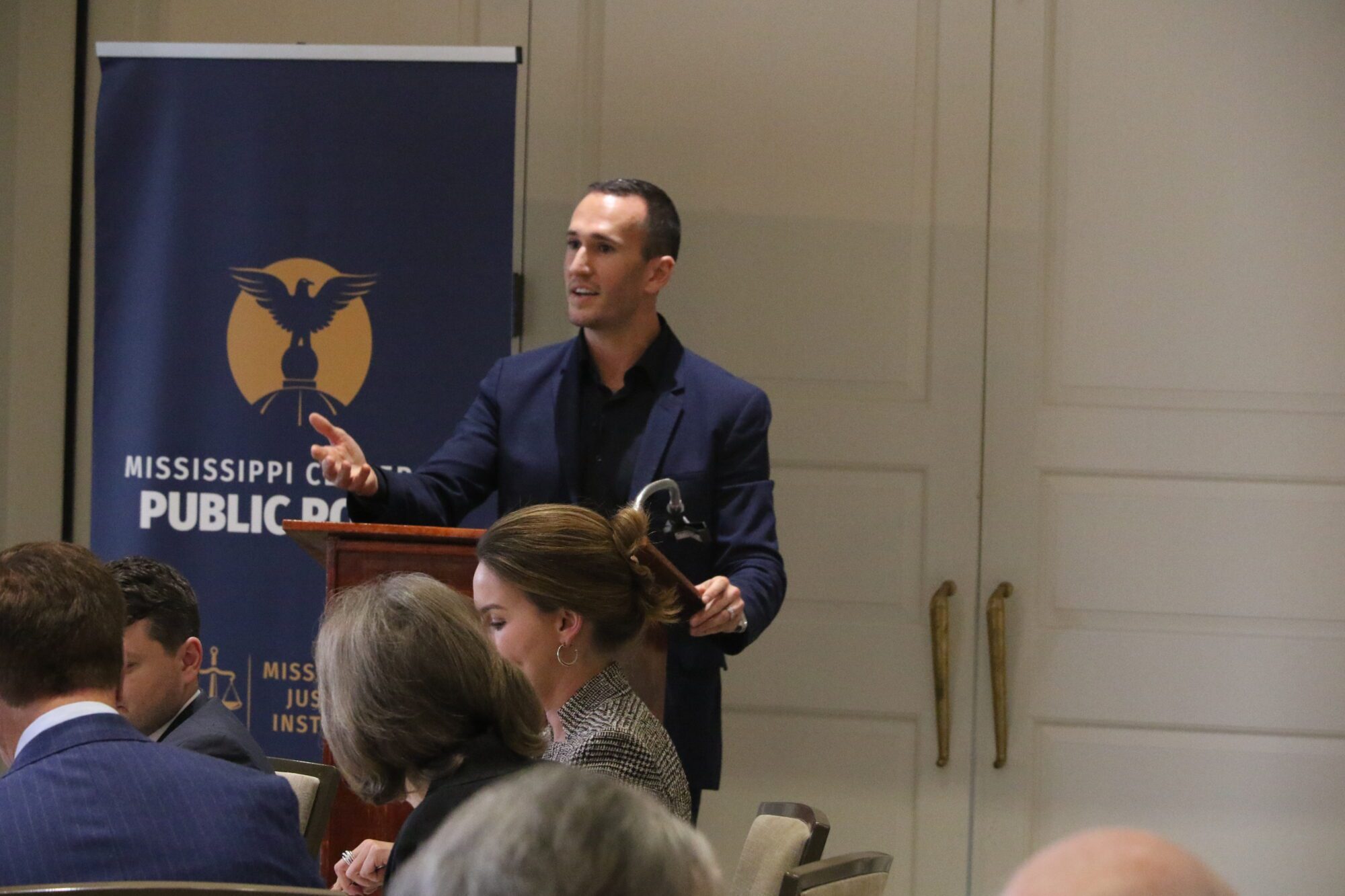
Corey DeAngelis, Senior Fellow with the American Federation for Children, speaks to attendees of Wednesday's Education Freedom Event hosted by the Mississippi Center for Public Policy. Photo by Jeremy Pittari
Attendees at an “Education Freedom” luncheon hosted by the Mississippi Center for Public Policy heard from national advocate Corey DeAngelis and an Arkansas legislator involved in passing a universal education freedom account program, among others.
There is a growing effort in Mississippi to give parents more freedom to ensure their children receive the best possible education, no matter their zip code, and free from ideologies that do not align with their family’s values.
On Wednesday, the Mississippi Center for Public Policy hosted the Education Freedom luncheon where roughly 120 attendees heard from advocates and lawmakers about the hurdles of passing universal school choice legislation and the benefits once it is achieved.
Universal school choice provides the right to use state funding normally reserved to the public school system and instead allow parents – the taxpayers – to put those funds toward offsetting the cost of private school tuition or to provide home-based learning to their children.
Corey DeAngelis is a Senior Fellow with the American Federation for Children, an organization that supports education freedom nationwide. He said Mississippi can follow the in steps of 10 other states that have passed universal school choice.
“We’re in the middle of a school choice revolution, particularly in red states. All across the country right now, we’ve had 10 states go universal on school choice in the last two years alone,” DeAngelis said. “What do I mean by universal? What do I mean by school choice? It means every single family in those states, including Arkansas, Arizona being one of them as well, can now take their children’s state funded education dollars to the education provider that suits them.”
States like Arkansas are providing everyone with an option to choose the school their child attends, and that can include their current public school, he added.
DeAngelis said Maine and Vermont have the oldest voucher program in the country, dating back to the late 1800s.
“At the end of the day, school choice is the rising tide that raises all boats,” DeAngelis said.
He also advocates for universal choice because he feels parents should be able to choose where children are educated and the values to which they are exposed. However, being able to decide where a child is educated comes with concerns of over-saturation in desirable public schools, but DeAngelis said there is nothing to fear.
“To quell fears that ‘I want to keep my public school the way that it is,’ you get first dibs if you live in the district, so if your school is full and people want to transfer over, the school doesn’t have to take them if they don’t have room. So, you still get what you bought in for when you bought your house,” DeAngelis explained.
With more funding to use per student, districts can provide teachers with much needed raises, such as what Arkansas did after universal choice was implemented. That is possible because the districts still received the same amount of federal and local funding.
There are also societal benefits to ensuring a child gets the best first steps in life.
“It’s not a big stretch to think that if you get a better education, you’re going to get a job as opposed to going and being involved in the criminal justice system,” DeAngelis said.
Parents support school choice not only for the academic reasons, but many others. Tons of studies show school choice improves safety, levels of satisfaction, reduces crime, and leads to a reduction in the likelihood of cases of teenage pregnancy, DeAngelis said.
To help Mississippi navigate the hurdles lawmakers will face as they try to pass universal school choice legislation, Arkansas State Rep. Aaron Pilkinton described the hurdles he faced while trying to pass the state’s LEARNS Act.
He said Arkansas’s first attempt to pass universal choice in 2017 was unsuccessful. In passing the LEARNS Act this year, the Arkansas Legislature paired education freedom reforms with public education priorities, like teacher pay raises.
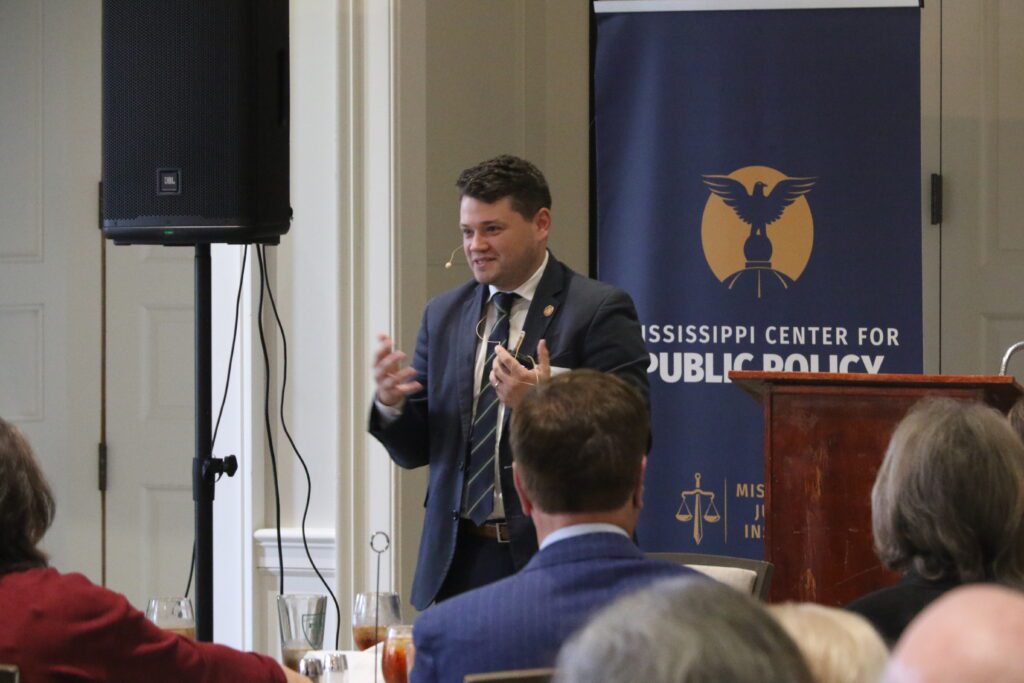
District 45 Representative Aaron Pilkinton of Arkansas describes the hurdles he and his fellow lawmakers faced when trying to pass universal school choice legislation in the state.
Pilkinton cautioned Mississippi’s lawmakers that efforts to dispel attempts at spreading misinformation will be necessary as they try to pass similar legislation.
“It almost became like a guerrilla-style warfare with misinformation and incrimination,” Pilkins said of the claims spread in Arkansas.
To respond to those misleading campaigns, Pilkinton suggested utilizing people who are willing to call out untruths and present factual information. Even with Mississippi’s current Republican supermajority in the Legislature, Pilkinton expects a lot of work will be needed to pass similar legislation in the Magnolia State.
“It’s still going to be a fight, but it’s definitely a fight worth having,” Pilkinton warned.
After Arkansas’ LEARNS Act passed, Pilkinton said a father thanked him for no longer having to worry about his child being exposed to or sold drugs at school. Pilkinton also noted that after it passed, all of the scare tactics used by detractors didn’t come to fruition.
“But you know what the reality is, most people moved on, the school year happened. The school was still standing. The earth didn’t open up and swallow the football field and everything was fine. And the teachers got a raise,” Pilkinton.
David Olson, President of ACE Mississippi, introduced fifth grader Treasure and sixth grader Casey who attend The Redeemer’s School in Jackson to demonstrate why universal choice is important. The children are recipients of scholarships provided by ACE, which is an organization that provides private money to families who need help paying for a private education.
At the school, Treasure said she is learning about Newton’s Law, while Casey said he is learning about how companies use the psychology of color to market food products. Casey learned that red makes people feel more hungry.
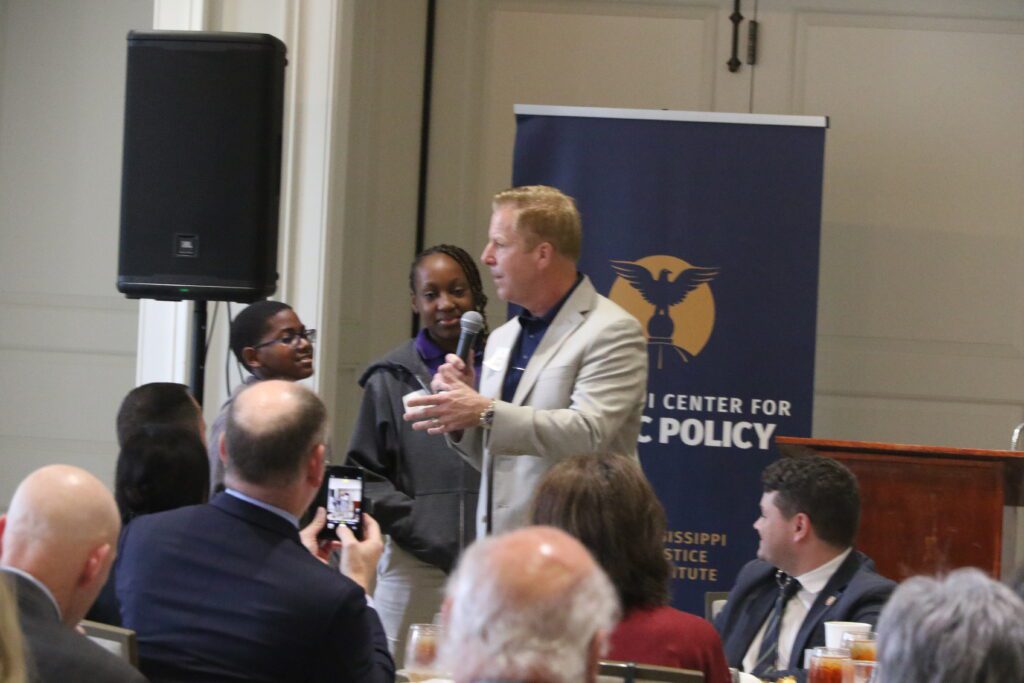
The two added that their educational experience is different from children in public school. For instance, class sizes at The Redeemer’s School average eight students, providing more time for a teacher to work with each student. Additionally, the children said their instruction includes lessons about God, which is not part of a public school’s curriculum.
Olsen ended his presentation by saying 100 percent of the students who received a scholarship from ACE graduated. Of that total, 89 percent went on to college, and 90 percent of those young people earned a degree.
Detractors of school choice programs claim that when that funding moves away from the public school it will have negative financial effects on the school district. A second argument is that allocating state funds to private schools is unconstitutional.
Supporters disagree on both counts. They note that schools will still receive both the federal and local tax dollars alloted to a student even if they choose to be educated elsewhere. This means that schools will not incur the expense of educating the student, but will still receive funds as if they were.
The constitutional claim is rooted in Section 208 of the Mississippi Constitution, which limits the expenditure of public funds to schools that provide a free public education. Aaron Rice, Director of the Mississippi Justice Institute, argued that the provision does not prevent an education scholarship account, which directs dollars not to individual schools, but to individual parents. He noted this distinction had been recognized in other states with similar constitutional provisions where school choice programs had been challenged.
Rice offered insight into two previous Mississippi Supreme Court rulings that could impact a future legal challenge should the Legislature pass a universal education freedom program.
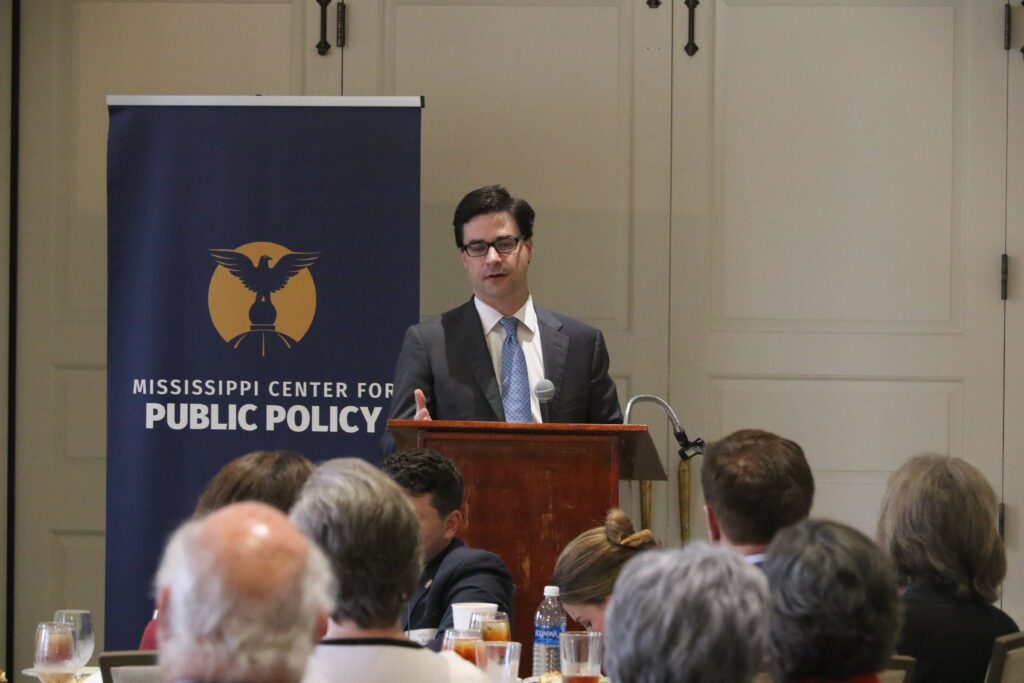
Aaron Rice, Director of the Mississippi Justice Institute, feels the Mississippi Supreme Court could rule in favor of using state education dollars to subsidize the cost of private tuition if universal school choice is challenged.
According to Rice, the first ruling might be interpreted as restricting the ability of the state to offer school choice programs. It occurred back in the late 1800s, after a program took funds from the state education common fund and sent those dollars to a private school. A challenge was filed, and the Mississippi Supreme Court struck down the shift in funding.
“So, that gave a bit of credence to this type of argument,” Rice agreed.
But in the 1940s, a second case was brought after the Legislature created a separate fund, outside of the one for education, to provide every student in the state with good textbooks. The money provided students with free textbooks in the state’s public schools, and to students attending private schools that met the state’s standard. The use of tax funds was also challenged, but this time the Mississippi Supreme Court ruled the use of funding was lawful because the books benefitted the student, and the money was not an appropriation to the school.
“So, we know we can do this. We can make this argument right now in an amicus brief,” Rice stated.


